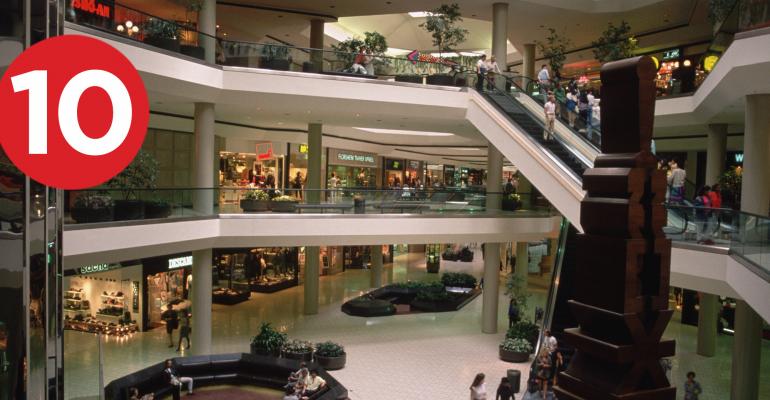- ‘The Big Short 2.0’: How Hedge Funds Profited Off the Pain of Malls “The trade Mr. Icahn and Ms. McKee met to discuss, known as the ‘mall short’ in financial circles, is the latest in a longstanding Wall Street tradition that some criticize as bottom-feeding because it preys on failure and can push a business over the edge while contributing little to the economy.” (The New York Times)
- Many Companies Planned to Reopen Offices After Labor Day. With Coronavirus Still Around, They’re Rethinking That. “In an August survey of 15 major employers that collectively employ about 2.6 million people, 57% said they had decided to postpone their back-to-work plans because of recent increases in Covid-19 cases. Nearly half said they were putting in additional safety measures for when they reopen, such as redesigned workspaces and temperature checks.” (The Wall Street Journal)
- BREAKING NEWS: Regus Puts Portion of Its Portfolio into Chapter 11 “RGN Group Holdings LLC, the company that operates Regus shared office suites, has voluntarily filed for Chapter 11 protection in the U. S. Bankruptcy Court for the District of Delaware for a segment of its portfolio. Included in the filing, representing a small portion of Regus’ portfolio, were locations in New York City, Chicago and San Francisco, among other markets.” (Connect Commercial Real Estate)
- US No Longer Leads the World in CRE Investment “The United States is no longer leading the rest of the world for commercial real estate investment and the numbers for July suggest that this trend will not reverse any time soon, according to a report by Real Capital Analytics.” (GlobeSt.com)
- How The Commercial Real Estate Industry Can Prevent A Massive Distressed Sell-Off “Based on the level of distress, foreclosures seem to be a given. But if lenders and borrowers work together and keep the lines of communication open, it is possible to prevent a tidal wave of distressed assets from hitting the market.” (Forbes)
- Delinquent Hotel Loans Backing CMBS Already Pass Great Recession Numbers “Nationally, the percentage of hotel loans tied to CMBS classified as 30 days or more late hit 23.4%, or $20.6B in total loan volume, in July — the highest percentage to date, according to Trepp…. The number of CMBS hotel loans now classified as 30 days late is already 53% higher than the delinquency rate reached during the height of the Great Recession, according to Trepp.” (Bisnow)
- Economic Data Points to Pause in Recovery as Aid Programs Expire “Real-time measures of consumer spending, business sentiment, small-business reopening plans and even available jobs began flatlining last month, suggesting that the wave of virus infections that swept across parts of the United States in June and July came with economic consequences. Small-business data from the time management firm Homebase shows no improvement since the middle of the summer in employment or hours worked in crucial parts of the economy. Job postings from the online recruiting site Indeed slipped backward this week for the first time since May.” (The New York Times)
- Congressional Panel Urges Fed and Treasury to Take More Risk With Main Street Program “The bulk of the panel's recommendations centered around the $600 billion Main Street Lending Program, which has seen modest use since launching in July, more than three months after it was announced.” (Reuters)
- Simon Property: E-Commerce Exposure On The Rise Through Authentic Brands Group And SPARC “Not only is Simon making money from the retail side but there are other benefits too. Rent keeps on flowing in, occupancy is higher and Simon is gradually gaining additional exposure to e-commerce through www.aeropostale.com as well as third party websites selling Aéropostale's merchandise. Some say content is king. Simon now owns the brand (i.e. the content).” (Seeking Alpha)
- Self Storage Sector Shows Signs of Resilience “Although on a year-over-year basis, street-rate rents declined 2.6 percent for the average 10×10 non-climate-controlled and 5.2 percent for climate-controlled units of similar size, self storage rents have significantly improved month-over-month. Street rates for 10×10 climate-controlled units saw the greatest month-over-month increase of the past four years, up 1.6 percent, while street rates for non-climate-controlled units grew by 1 percent.” (Commercial Property Executive)
0 comments
Hide comments





